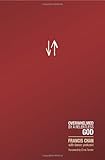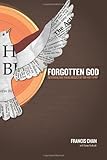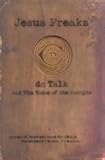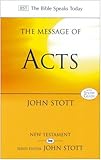 This volume in the Bible Speaks Today series contains a brief introduction and the full text of Judges from the RSV. As with many commentators on Judges, Wilcock highlights the recurring pattern of rebellion, retribution, repentance and rescue. However, he is also eager to point out that there are many things in the book that don’t fit neatly into that pattern. In fact, he argues that rather than having a cyclic structure, the book of Judges portrays a downward spiral.
This volume in the Bible Speaks Today series contains a brief introduction and the full text of Judges from the RSV. As with many commentators on Judges, Wilcock highlights the recurring pattern of rebellion, retribution, repentance and rescue. However, he is also eager to point out that there are many things in the book that don’t fit neatly into that pattern. In fact, he argues that rather than having a cyclic structure, the book of Judges portrays a downward spiral.
His comments on Ehud are interesting. Ehud is the story of the unexpected. Wilcock considers it more likely that he was disabled in his right hand rather than left-handed per se. Ehud is in fact the first of a whole series of unlikely heroes that characterise the book of Judges. The rescuers God sends so often come from the places we least expect (as was true of Jesus).
God repeatedly allows his people to get their fingers burned in order that they come to see that ‘Canaan’ is in fact the great enemy. With each rotation of the cycle (or spiral), we see how shallow Israel’s repentance is.
Another interesting section is on Jephthah – another unlikely hero, “despised and rejected by men”. He discusses how come Jephthah comes to get a mention in Heb 11:32 for being a man of faith, despite doing what seems a shockingly immoral act. Jephthah had not “heard” many of God’s commands, but he had at least heard the command to keep your word.
The final judge, Samson, was a man who had the Spirit, but not wisdom, or a “clean heart and a right spirit”. But even in the story of Samson, Wilcock points out parallels with the story of Jesus – handed over to death by his own people, and winning a great victory in his death.
Judges ends with a shocking account of just how far Israelite society had fallen morally, with God virtually absent in the closing chapters. But yet he declares that the book of Judges is ultimately a story of grace. God doesn’t abandon his people, though they richly deserve it, but ensures they don’t completely destroy themselves by their own wilful folly.
Although the commentaries of Dale Ralph Davies on the Old Testament Historical books remain firm favourites of mine, I have to say that I enjoyed Wilcock’s approach to Judges, particularly his attention to how each judge’s story contributes to the overall message of the book.









